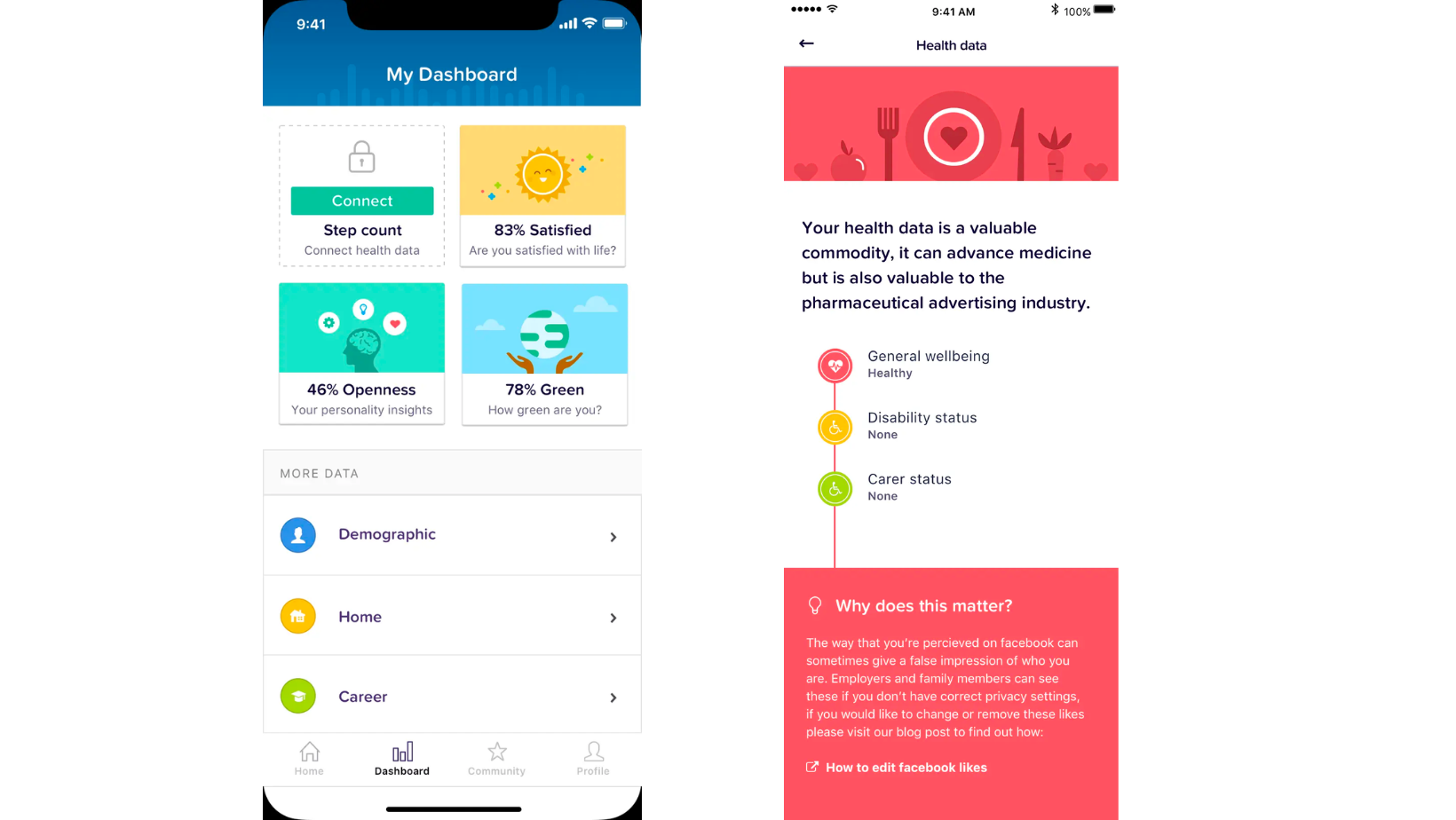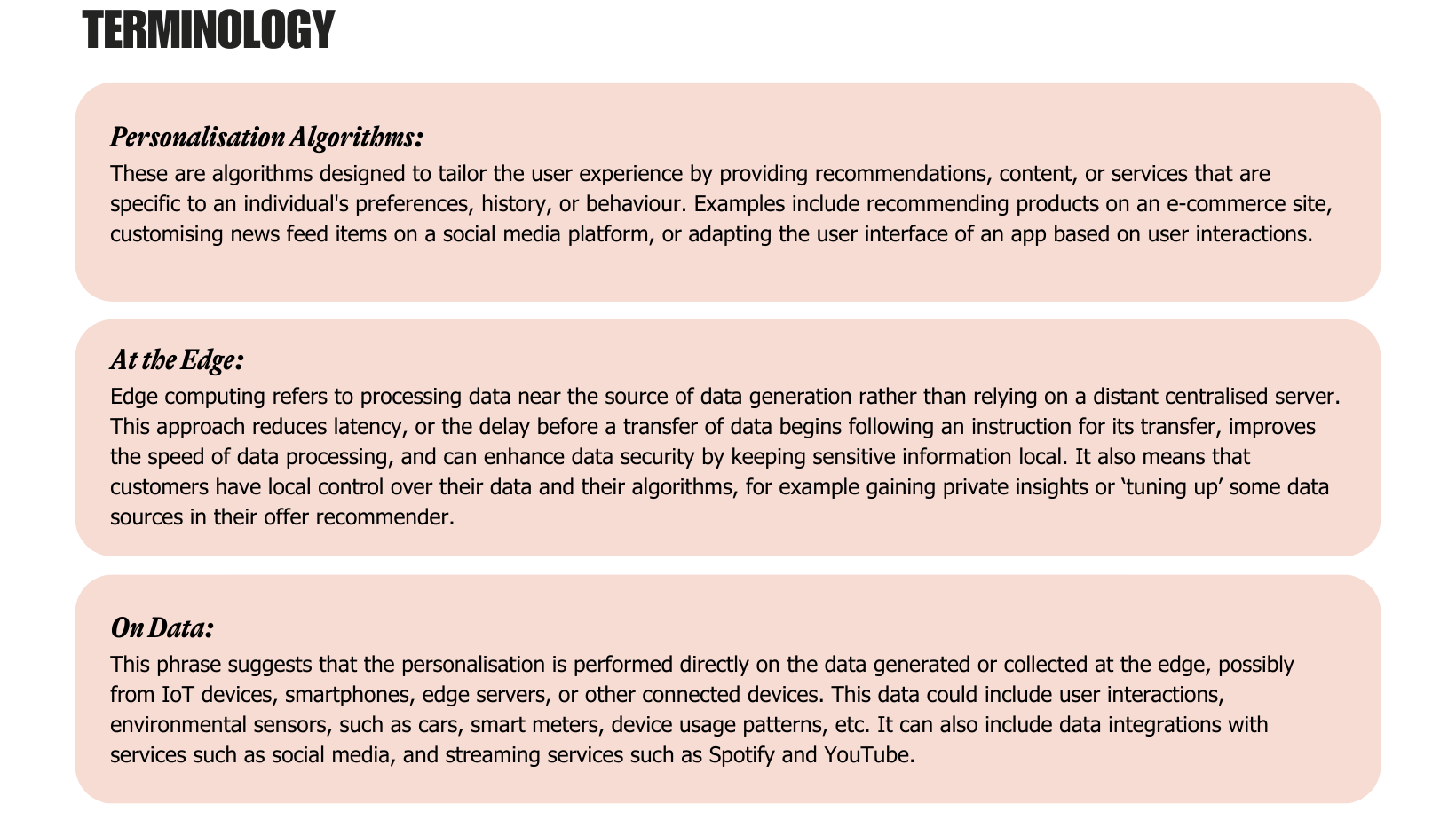In a recent study (based entirely on zero-party data), Publishers Clearing House Consumer Insights found that 86% of Americans are more concerned about their privacy and data security than the state of the U.S. economy – but two-thirds either don't know or are misinformed about how their data is being used and who has access to it. We see a future where consumers will have total autonomy over their personal data. Consumers will be more aware of its value, demanding a fairer and more transparent value exchange between themselves and the third parties they share it with.
The confluence of three trends has resulted in a major shift in the consumer data landscape over the past five years: encroaching data privacy regulations, greater consumer awareness of the value of their personal data, and big tech data sharing policies. Owners of consumer data, particularly social platforms, have been able to monetise this data to extreme levels over the past five to ten years whilst remaining relatively unchallenged as their value appeal continued to grow. As this value exchange has begun to stagnate, consumers are recognising the true value of their personal data which has been so freely exchanged by third parties. As such, they are looking for greater control, privacy and a clearer value exchange.
To explore just how significant this evolution has been and what retailers and brands should be doing in response, we sat down with StJohn Deakins, Founder and CEO of DataSapien. DataSapien enables the world’s major consumer brands to drive connection beyond the conversion, with trusted human-centric zero-party data technology solutions. These solutions allow brands to embed zero-party data wallets into their existing apps and subsequently drive omnichannel personalisation whilst keeping personal data on the user’s device. DataSapien technology is already deployed on a separate consumer-facing platform, CitizenMe, which comprises over 500,000 people sharing their own data for market research purposes.

Hi StJohn, thanks for making the time today. What is DataSapien up to right now?
At the moment, we’re completing a software development kit (SDK) so that brands can give their customers a personal data wallet within their existing app, allowing for that data to be used for customer data enrichment instead of spending millions with data brokers for fairly dirty, slightly risky, incomplete data. On top of that, we can then deploy personalisation algorithms ‘at the edge’ or ‘on’ this data, without having to stream it all back to a central server. (See terminology box below)
How have you seen the landscape shift when it comes to consumer data?
We began developing CitizenMe in 2014, long before the term zero-party data was coined, never mind being the hot topic of the AI, data research and marketing worlds. Even then we were true believers in the power of human-centred data to transform our digital society for the better. We also knew that the status quo of mass data harvesting without proper user consent would have to change. So, we began to build that change.
The initial CitizenMe put advanced privacy controls in the hands of citizens, letting them control the access to their data that apps and websites demanded. It informed citizens of concerning data clauses buried in complex terms of service agreements. It presented a ‘digital mirror’ to social media users, allowing them to see how their profiles and personas appeared to advertisers and allowed them to make changes across multiple sites. At launch, the original app gathered a limited but enthusiastic audience of approximately 20,000 users. Of those users, about 80% were asking if they could get value for their data. ‘If all these other people are getting value from it, it's not fair’, was a big sentiment. And so, we pivoted the app.
Around 2017, GDPR became a big thing and you saw a much greater understanding of personal data and what personal data is, as well as the fact that there is a value exchange and companies are taking data and monetising it. However, there was a general perception that there wasn’t much that you could do about it.
Then came the chatter about cookies disappearing. Apple has done an amazing job over the last decade, really focusing on privacy advertising, a key trend coming through nowdays. You’re seeing more adverts around privacy and privacy-related tech which is a massive shift. We’re in a completely different place from where we were ten years ago, however, things are still very privacy-centric and not empowerment-centric. This is the next shift.
Do you think the key for consumers is to gain visibility into what raw data is being held on them by brands and retailers?
If you think about it, everyone has a browsing history, but how many people delve back through their browsing history and look at it? What was I browsing on this day two months ago or a year ago today… people just don't do that.
You regularly have access to that information, but it doesn't actually provide you with much insight. All the insight goes off to third parties that are using it for retargeting ads. So, it's really the useful insight that you can glean from that data which is truly valued by consumers. Spotify for instance do a superb job of this with Spotify Wrapped. It creates tangible value from your data in the form of personalised experiences, and then shares some of the insights which informed these experiences with the user. People are much more interested in that layer on top of the data - if they know that it’s based on underlying raw data that they’re in control of, then they don't really need to look at it. In 2023 we saw a number of UK grocery retailer loyalty apps follow this “year wrapped” insight trend. We believe this is just scratching the surface of what’s possible.
How do you think the consumer data landscape will evolve in the future?
For retailers and brands, discussions of consumer data have become almost entirely defensive, focussing on maintaining trust and staying within regulatory guardrails. Whilst it is more important than ever to maintain a compliant and secure data infrastructure in light of elevated cybersecurity threats, there is also an opportunity here to focus on empowering data exchanges.
Take AI for instance. It is understandably raising countless data ownership and privacy concerns, but we’re looking at how we could combine our edge data solutions with generative AI models to deliver zero-party, omni-personalised experiences.
You have companies like OpenAI and Meta saying they are working on generative AI personal agents, but this would mean users sending all of their data off to a server somewhere. You could imagine that will be very useful for those companies because they've run out of data to train their models on. I think big corporates who have already got 10, 50, 100 million customers will need to offer the same sort of thing, but in a privacy-preserving way, because as soon as they send all their customer data off to OpenAI it becomes a massive liability. They can also provide far more personal services by utilising a human-centric technology that empowers their customers.
Final thoughts
We’re in a critical moment in the evolution of data privacy and consumer empowerment. This trend calls for a reimagined approach to data management, where transparency, control, and mutual value are paramount. Data security must be maintained over prolonged periods to truly build consumer trust. The insights from industry innovators like DataSapien herald a future where personal data serves as a cornerstone for personalised digital experiences, challenging brands and consumers alike to navigate this new landscape with awareness and purpose. Further to this, in an environment in which it becomes more difficult to collect consumer data, alternatives must be found in order to maintain the ability to deliver personalised experiences. This transformation not only reflects a shift in technological capabilities but also a fundamental change in societal values towards data privacy and consumer empowerment.
If you want to explore how your organisation can become more data conscious and how you can foster an environment of transparency with consumers, get in touch here.

